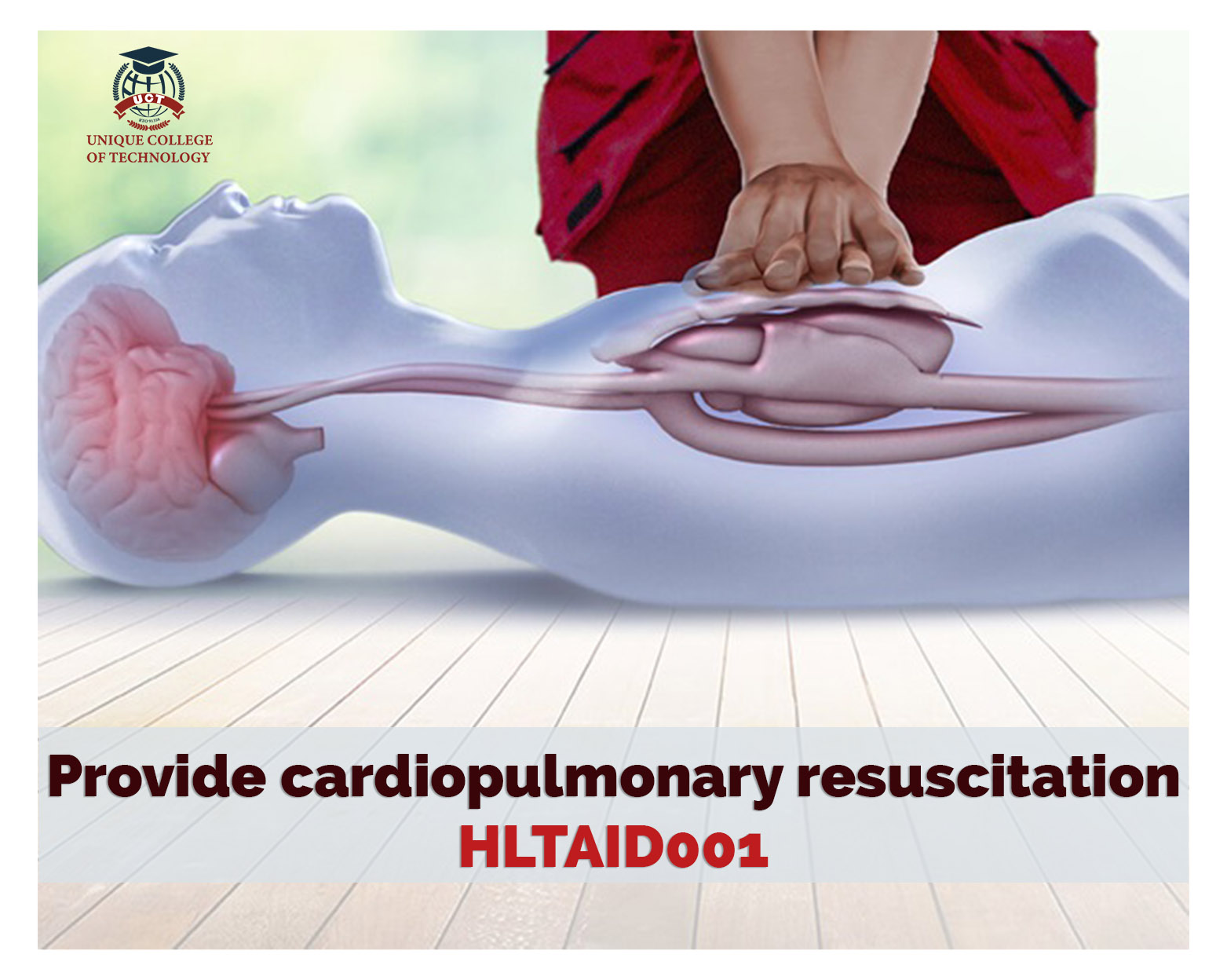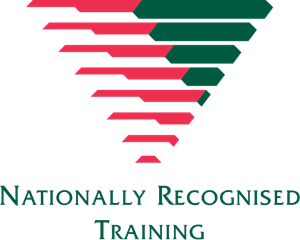
Application for Provide cardiopulmonary resuscitation
This unit describes the skills and knowledge required to perform cardiopulmonary resuscitation (CPR) in line with the Australian Resuscitation Council (ARC) Guidelines.
This unit applies to all workers who may be required to provide CPR, in a range of situations, including community and workplace settings.
Specific licensing /regulatory requirements relating to this competency, including requirements for refresher training should be obtained from the relevant national/state/territory Work Health and Safety Regulatory Authorities.
Elements and Performance Criteria for cardiopulmonary resuscitation
|
ELEMENT |
PERFORMANCE CRITERIA |
|
Elements define the essential outcomes. |
Performance criteria specify the level of performance needed to demonstrate achievement of the element. |
|
1. Respond to an emergency situation |
1.1 Recognise an emergency situation 1.2 Identify, assess and minimise immediate hazards to health and safety of self and others 1.3 Assess the casualty and recognise the need for CPR 1.4 Seek assistance from emergency response services |
|
|
|
|
2. Perform CPR procedures |
2.1 Perform cardiopulmonary resuscitation in accordance with ARC guidelines 2.2 Display respectful behaviour towards casualty 2.3 Operate automated external defibrillator (AED) according to manufacturer’s instructions |
|
|
|
|
3. Communicate details of the incident |
3.1 Accurately convey incident details to emergency response services 3.2 Report details of incident to workplace supervisor as appropriate 3.3 Maintain confidentiality of records and information in line with statutory and/or organisational policies |
Foundation Skills
|
The Foundation Skills describe those required skills (language, literacy, numeracy and employment skills) that are essential to performance. |
|
Foundation skills essential to performance are explicit in the performance criteria of this unit of competency. |
Unit Mapping Information
No equivalent unit.
Assessment requirements
Modification History
|
Release |
Notes |
|
Release 5 |
Updated:
Equivalent outcome. |
|
Release 4 |
Updated mapping information. Changes to assessment requirements. Equivalent outcome. |
|
Release 3 |
Updated mapping information. Equivalent outcome. |
|
Release 2 |
Updated mapping information. Equivalent outcome. |
|
Release 1
|
This version was released in HLT Health Training Package release 1.0 and meets the requirements of the 2012 Standards for Training Packages. Significant changes to elements and performance criteria. Revised evidence requirements, including volume and frequency of assessment. |
Performance Evidence for cardiopulmonary resuscitation
The candidate must show evidence of the ability to complete tasks outlined in elements and performance criteria of this unit, manage tasks and manage contingencies in the context of the job role.
There must be evidence that the candidate has completed the following tasks in line with state/territory regulations, first aid codes of practice, Australian Resuscitation Council (ARC) guidelines and workplace procedures:
- Followed DRSABCD in line with ARC guidelines, including:
- performed at least 2 minutes of uninterrupted single rescuer cardiopulmonary resuscitation (CPR) (5 cycles of both compressions and ventilations) on an adult resuscitation manikin placed on the floor
- performed at least 2 minutes of uninterrupted single rescuer CPR (5 cycles both compressions and ventilations) on an infant resuscitation manikin placed on a firm surface
- responded appropriately in the event of regurgitation or vomiting
- managed the unconscious breathing casualty
- followed single rescue procedure, including the demonstration of a rotation of operators with minimal interruptions to compressions
- followed the prompts of an automated external defibrillator (AED)
- Responded to at least one simulated first aid scenario contextualised to the candidate’s workplace/community setting, including:
- demonstrated safe manual handling techniques
- provided an accurate verbal or written report of the incident
Knowledge Evidence
The candidate must be able to demonstrate essential knowledge required to effectively complete tasks outlined in elements and performance criteria of this unit, manage tasks and manage contingencies in the context of the work role. This includes knowledge of:
- State/Territory regulations, first aid codes of practice and workplace procedures including:
- ARC Guidelines relevant to the provision of CPR
- safe work practices to minimise risks and potential hazards
- infection control principles and procedures, including use of standard precautions
- requirements for currency of skill and knowledge
- Legal, workplace and community considerations, including:
- awareness of potential need for stress-management techniques and available support following an emergency situation
- duty of care requirements
- respectful behaviour towards a casualty
- own skills and limitations
- consent
- privacy and confidentiality requirements
- importance of debriefing
- Considerations when providing CPR, including:
- airway obstruction due to body position
- appropriate duration and cessation of CPR
- appropriate use of an AED
- chain of survival
- standard precautions
- Basic anatomy and physiology relating to:
- how to recognise a person is not breathing normally
- chest
- response/consciousness
- upper airway and effect of positional change
Assessment Conditions
Skills must be demonstrated working individually in an environment that provides realistic in-depth, industry-validated scenarios and simulations to assess candidates’ skills and knowledge.
Assessment resources must include:
- adult and infant resuscitation manikins in line with ARC Guidelines for the purpose of assessment of CPR procedures
- AED training device
- workplace injury, trauma and/or illness record, or other appropriate workplace incident report form
Simulated assessment environments must simulate the real-life working environment where these skills and knowledge would be performed, with all the relevant equipment and resources of that working environment.
Assessor Requirements for cardiopulmonary resuscitation
Assessors must satisfy the Standards for Registered Training Organisations (RTOs) 2015/AQTF mandatory competency requirements for assessors.
In addition hold current first aid certificate HLTAID003 or higher.



